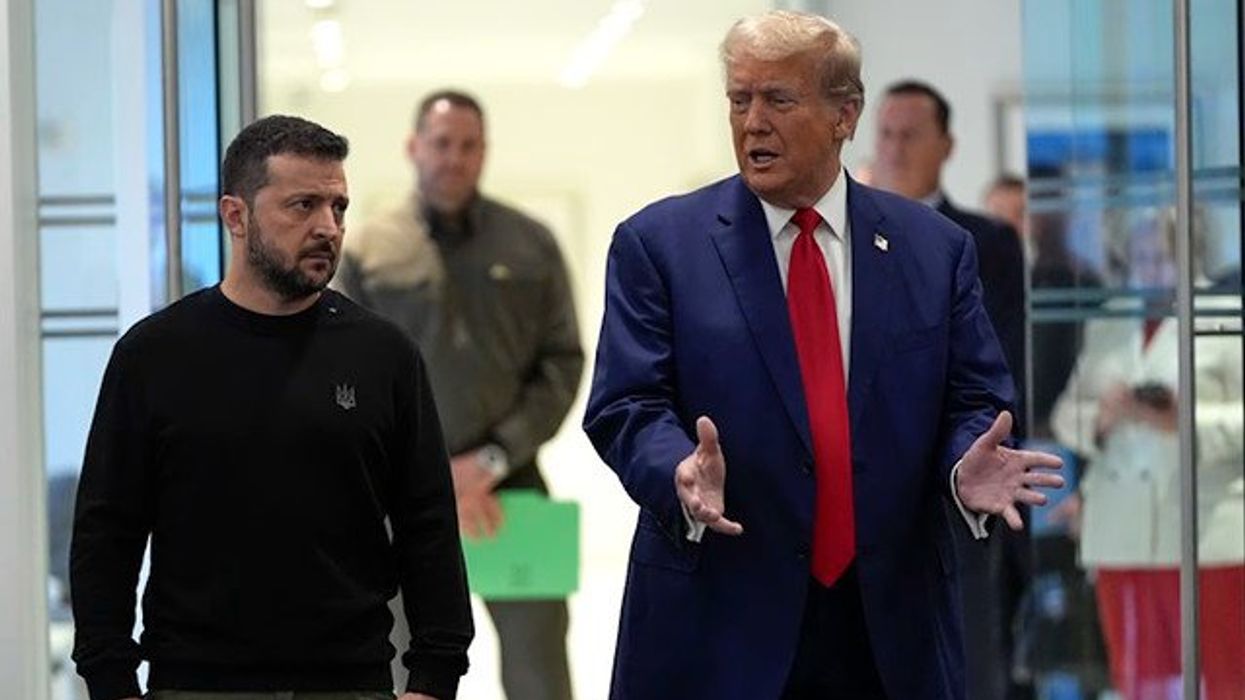In one of the most dramatic White House confrontations in recent memory, President Donald Trump’s meeting with Ukrainian President Volodymyr Zelensky exposed a deepening rift between Kyiv and Washington.
Zelensky, seeking reassurances on U.S. support and a critical minerals deal, faced a blistering rebuke from Trump and his team instead. The spectacle underscored the mounting uncertainty surrounding America’s role in the Ukraine conflict and its long-term commitment to Kyiv. Zelensky’s visit was expected to reinforce economic ties and secure continued U.S. military aid. However, tensions flared when Trump accused Zelensky of being “disrespectful” and “not ready for peace.” Vice President J.D. Vance, a proponent of reduced aid to Ukraine, intensified the confrontation by questioning Kyiv’s gratitude.
As the exchange escalated, Zelensky pointed out that Russian President Vladimir Putin had repeatedly violated ceasefires, rendering diplomatic overtures futile. Vance countered that diplomacy was the only viable path to ending Ukraine’s destruction. The breaking point came when Trump bluntly told Zelensky, “You don’t have the cards right now. With us, you start having cards.” The fallout was immediate. Zelensky’s planned joint press conference with Trump was abruptly canceled, and his security detail swiftly escorted him out of the White House grounds.
The friction between Trump and Zelensky is not new. Zelensky was an unwilling participant in Trump’s first impeachment saga in 2019 when Trump was accused of pressuring Ukraine to investigate Joe Biden in exchange for military aid. More recently, Trump has repeatedly questioned U.S. support for Kyiv, labeling Zelensky a “dictator without elections” and blaming Ukraine for the war—comments that have only widened the divide.
Zelensky has pushed back, accusing Trump of parroting Russian disinformation. His refusal to sign a critical minerals deal at the Munich Security Conference further irked the Trump camp, which had sought access to Ukraine’s vast rare-earth resources. The White House viewed this as yet another sign of Kyiv’s reluctance to align with U.S. economic interests.
Russia wasted no time in capitalizing on the rift. Former Russian President Dmitry Medvedev mockingly declared that Zelensky had finally received the “slap down” he deserved. Russian state media framed the episode as proof that U.S. support for Ukraine was waning, portraying Trump’s stance as a signal that Washington could no longer be relied upon as Kyiv’s steadfast ally.
The timing could not have been worse for Ukraine. Friday marked the third anniversary of Russia’s full-scale invasion, a grim reminder that despite billions in Western aid, Kyiv remains locked in a war of attrition.
For Putin, the White House debacle was more than just a public relations win—it was a potential turning point in his long-term strategy to fracture Western unity.
While international reaction was mixed, Trump’s allies in the Republican Party backed him. Senator Lindsey Graham, once a vocal supporter of U.S. aid to Ukraine, defended Trump’s approach. “Most Americans watching today wouldn’t want Zelensky as a business partner,” Graham remarked on Fox News, reflecting a broader GOP shift away from unconditional support for Kyiv. Press Secretary Karoline Leavitt echoed Trump’s stance, stating that he and Vance were “standing up for the American people.” Even Senator Marco Rubio, who reportedly sat stone-faced during the meeting, later praised Trump for displaying “the courage no president has shown before.”
European leaders were left unsettled. French President Emmanuel Macron and British Prime Minister Keir Starmer had sought to reassure Trump of NATO’s commitment to countering Russian aggression. Macron flattered Trump’s negotiation skills, while Starmer extended an invitation from King Charles for a state visit. Their efforts now seem in vain, as Trump’s clash with Zelensky sent shockwaves through European capitals.
European nations, already anxious about Trump’s unpredictability, must now prepare for the possibility that Kyiv may need to fend for itself.
For Zelensky, the fallout presents a serious dilemma. With Trump signaling a potential U.S. pullback, Kyiv must reinforce its alliances elsewhere, particularly within the European Union.
Despite the tensions, Ukraine relies heavily on American military and economic aid, making it imperative to navigate Washington’s shifting political landscape cautiously.
For Trump, the Oval Office showdown was a calculated display of strength designed to appeal to his “America First” base while reinforcing his tough-on-allies stance. Whether this approach yields tangible diplomatic results remains to be seen. If anything, the meeting reinforced concerns that Trump’s foreign policy is driven more by personal grievances than strategic vision.
Meanwhile, Moscow is watching closely, waiting for the moment when Western unity fractures completely. If Friday’s Oval Office spectacle was any indication, that moment may not be far off.
In addition, Ukraine should explore diversifying its alliances beyond traditional Western partners. Strengthening ties with emerging powers such as India, Japan, and South Korea could provide Kyiv with alternative sources of support and investment. By fostering these relationships, Ukraine can reduce its dependency on any single ally and build a more resilient network of international partnerships. This approach enhances Ukraine's strategic position and signals to Moscow that Kyiv has a broad support base, making it more challenging for Russia to exploit divisions within the international community.
The path forward will hinge on whether European leaders can step into the vacuum left by the United States and whether Ukraine can withstand the mounting pressure from Moscow and Washington. If Macron and Starmer can forge a coherent European-led strategy, they may succeed in keeping Ukraine’s war effort viable. However, if Trump continues to undermine Zelensky while sending mixed signals to U.S. allies, the risk of a fractured Western response - and a weakened Ukraine - will only grow.
In the coming days, the world will be watching closely. Ukraine’s future hangs in the balance, and the choices made by Western leaders now will determine whether Kyiv can withstand this latest geopolitical storm or be forced into a settlement that undermines its sovereignty and security.
Imran Khalid is a physician, geostrategic analyst, and freelance writer.




















Trump & Hegseth gave Mark Kelly a huge 2028 gift